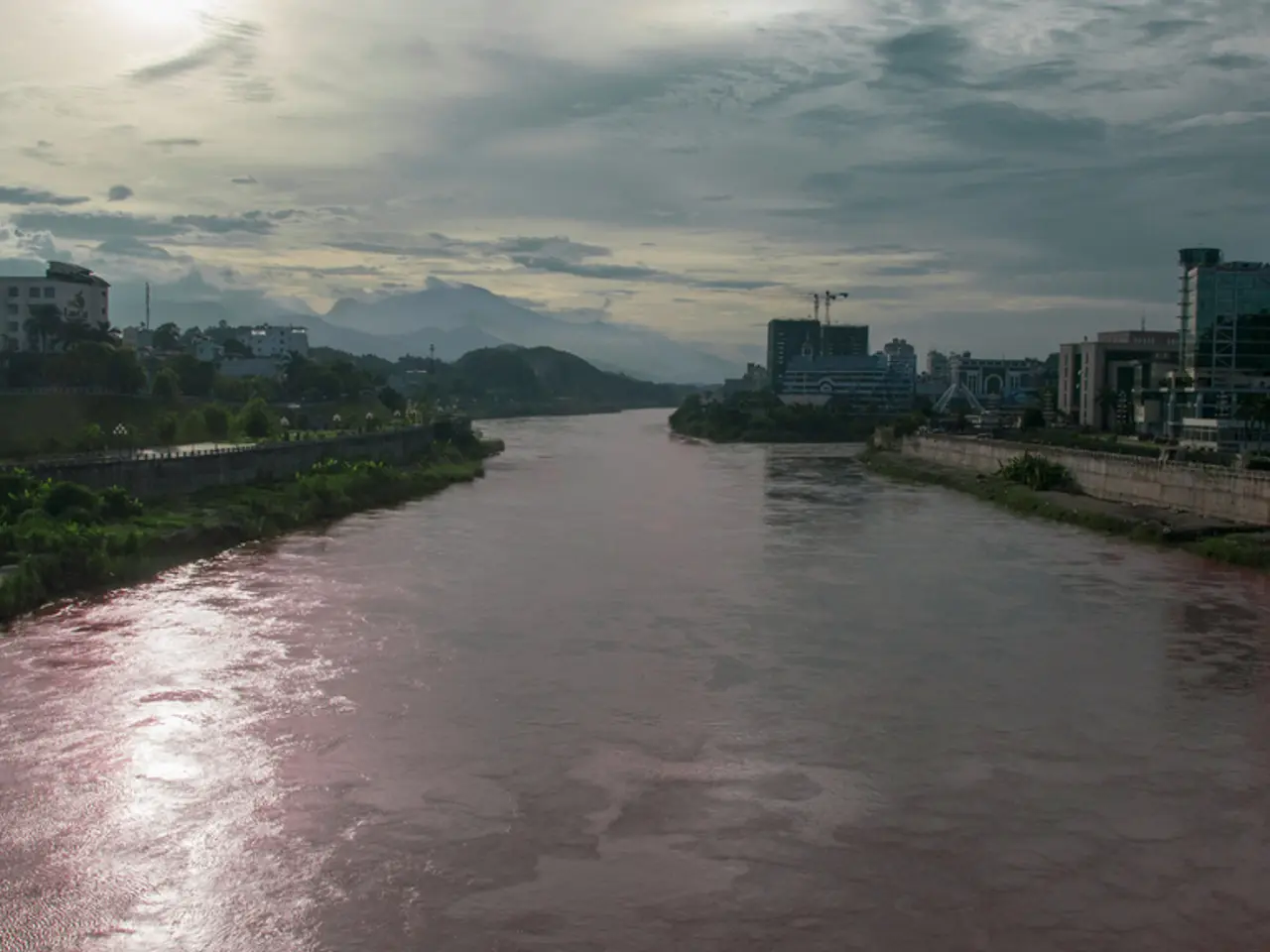Ethiopian Prime Minister asserts that the newly constructed mega dam poses no danger to neighboring countries, contradicting concerns raised by some nearby nations.
The Grand Ethiopian Renaissance Dam (GERD) was officially inaugurated in Ethiopia on Tuesday, marking a significant milestone in the country's economic ambitions. The dam, located near the northwestern border with Sudan and straddling the Blue Nile, was described by Ethiopian Prime Minister Abiy Ahmed as a 'great achievement not only for Ethiopia but for all black people.'
The GERD, central to Ethiopia's economic aspirations, is poised to provide a much-needed energy boost to a country where approximately 45% of its 132-million population lack electricity. The dam's turbines were first turned on in 2022 and reached their maximum capacity of 5,150 megawatts.
However, the GERD has been a point of contention between Ethiopia, Sudan, and Egypt. Egypt's President Abdel Fattah el-Sissi has called the GERD an 'existential threat,' while Egyptian President el-Sissi has vowed to take all necessary measures under international law to defend Egypt's water security.
Despite these geopolitical tensions, Ethiopia has been reassuring its concerned neighbors, claiming that the GERD will be beneficial to its upstream neighbors by generating electricity before water continues northwards. Ethiopia has already signed electricity contracts with Kenya, Sudan, and Djibouti, and discussions are underway with other neighboring countries regarding electricity contracts.
Pietro Salini, CEO of Webuild, the Italian construction company that built the GERD, stated that the country is now selling energy to neighboring countries. Mekdelawit Messay, an Ethiopian water researcher at Florida International University, added that the GERD serves as a banner to rally under and shows what can be achieved when unified.
The inauguration festivities included a dazzling light show with lasers and drones, reflecting the pride and excitement surrounding this monumental achievement. Despite the ongoing discussions and tensions, the GERD stands as a testament to Ethiopia's determination and resilience.
Blackouts in the capital Addis Ababa continue to force businesses and households to rely on generators, but the hope is that the GERD will bring a brighter future for Ethiopia and its neighbors. The project, funded exclusively with Ethiopian money and without foreign assistance, is a symbol of self-reliance and progress for the nation.
Elizabeth Schumacher edited this article.





